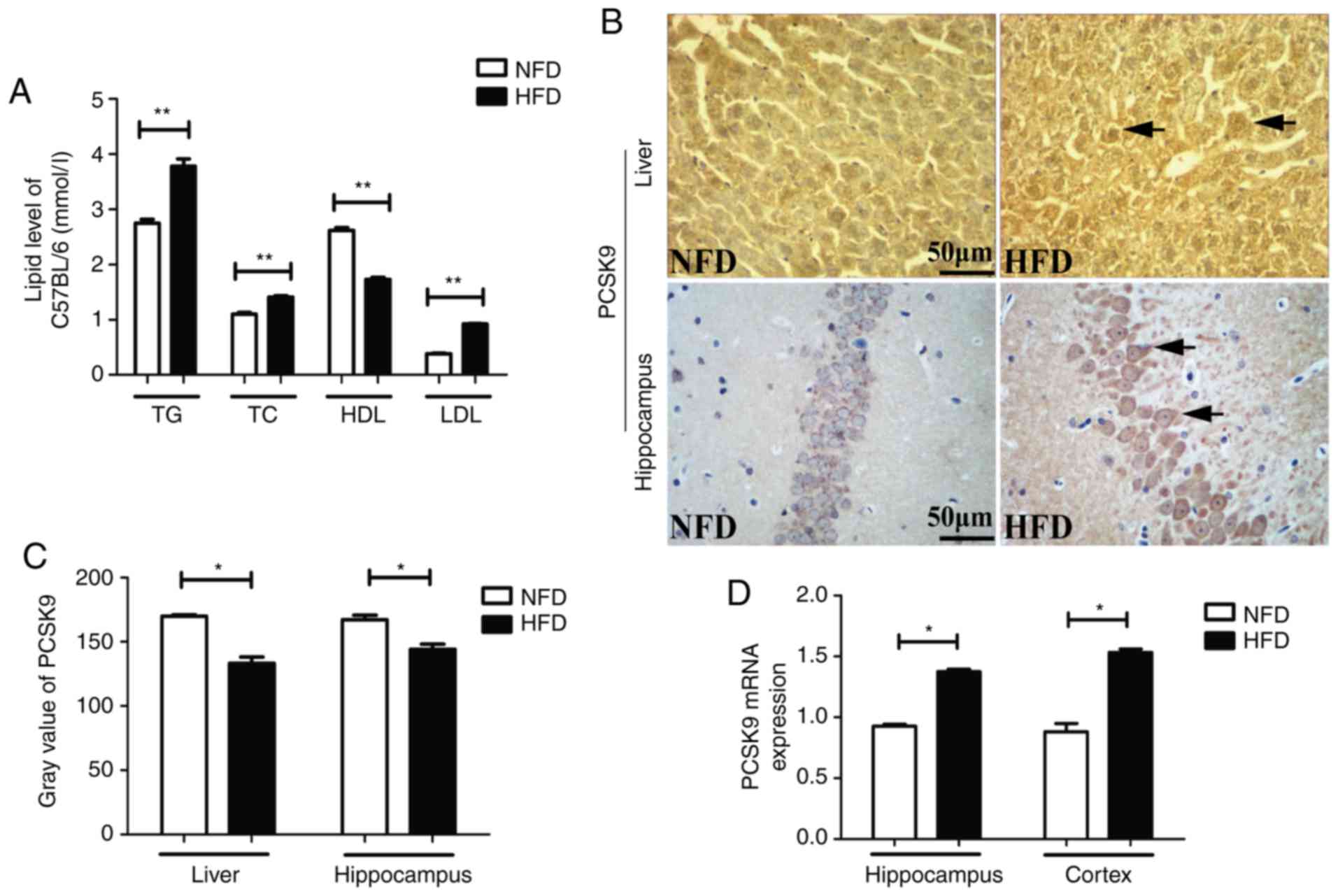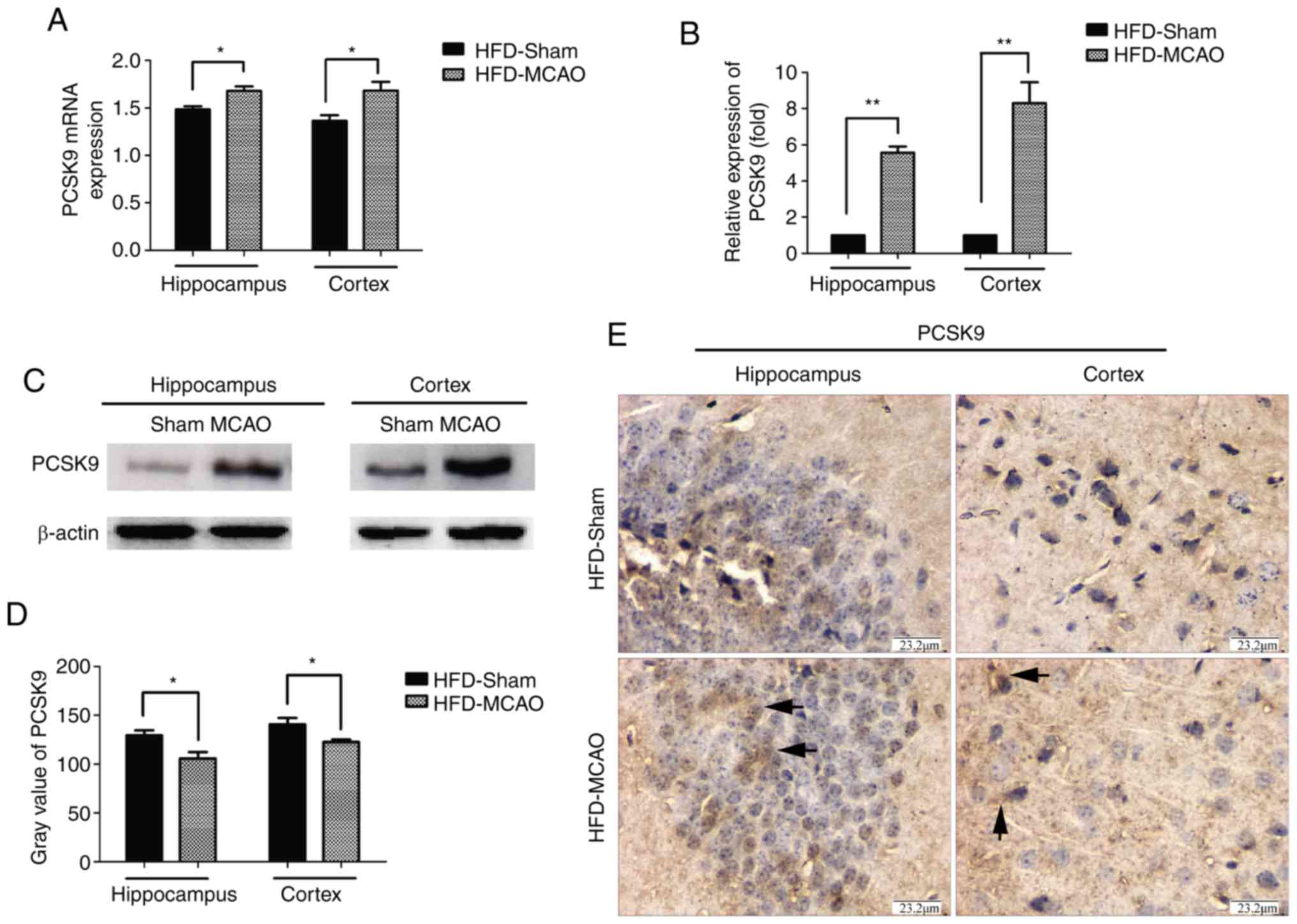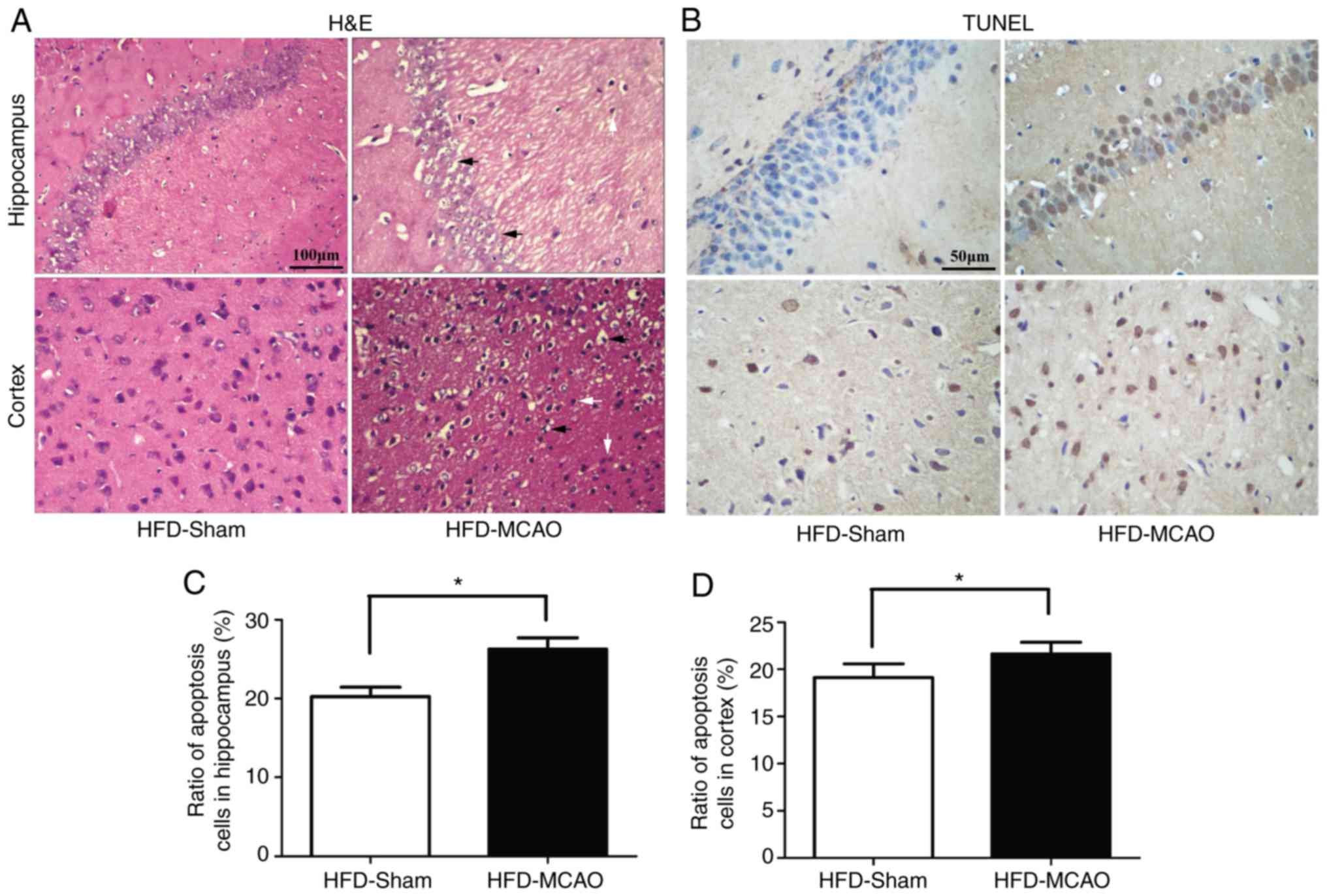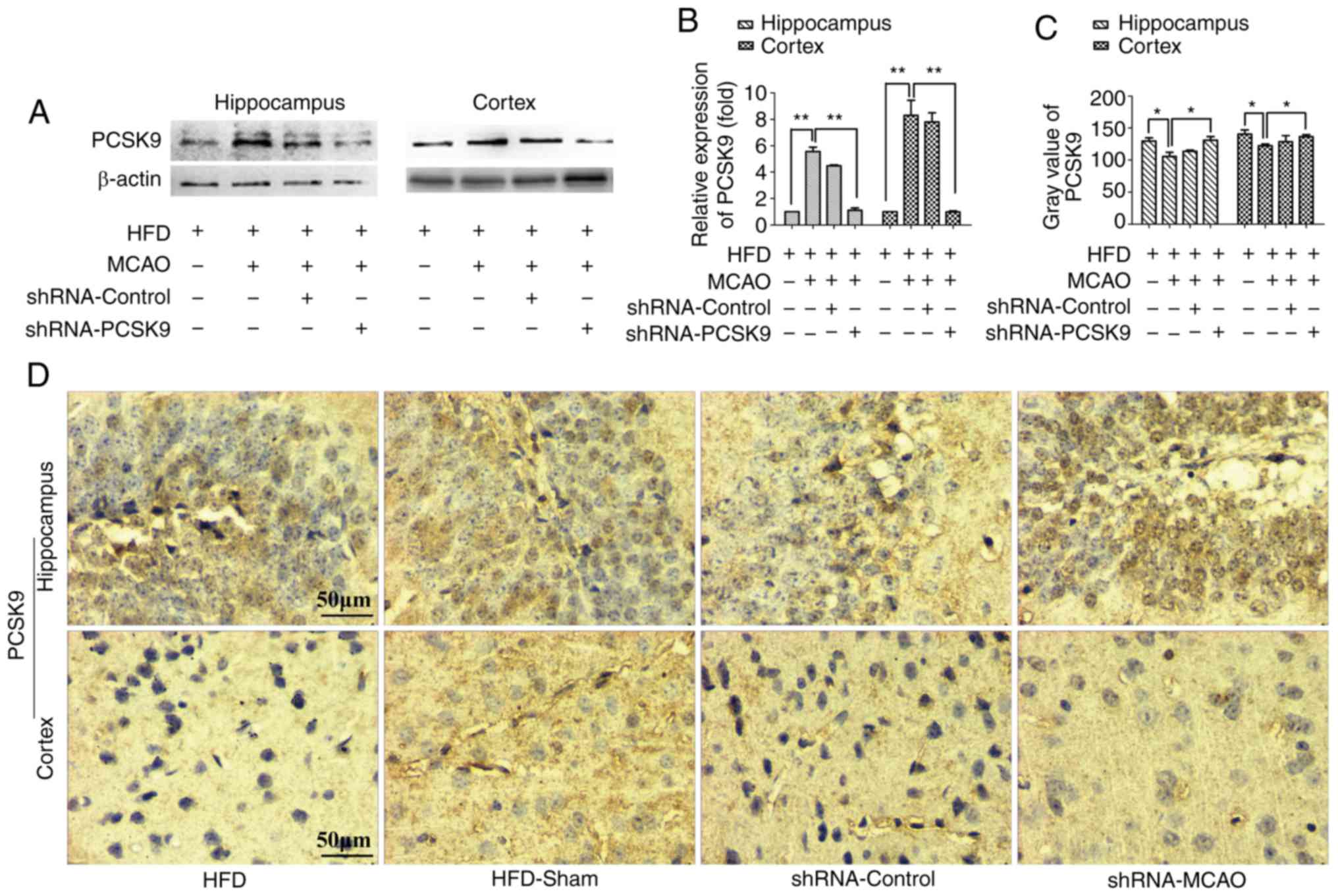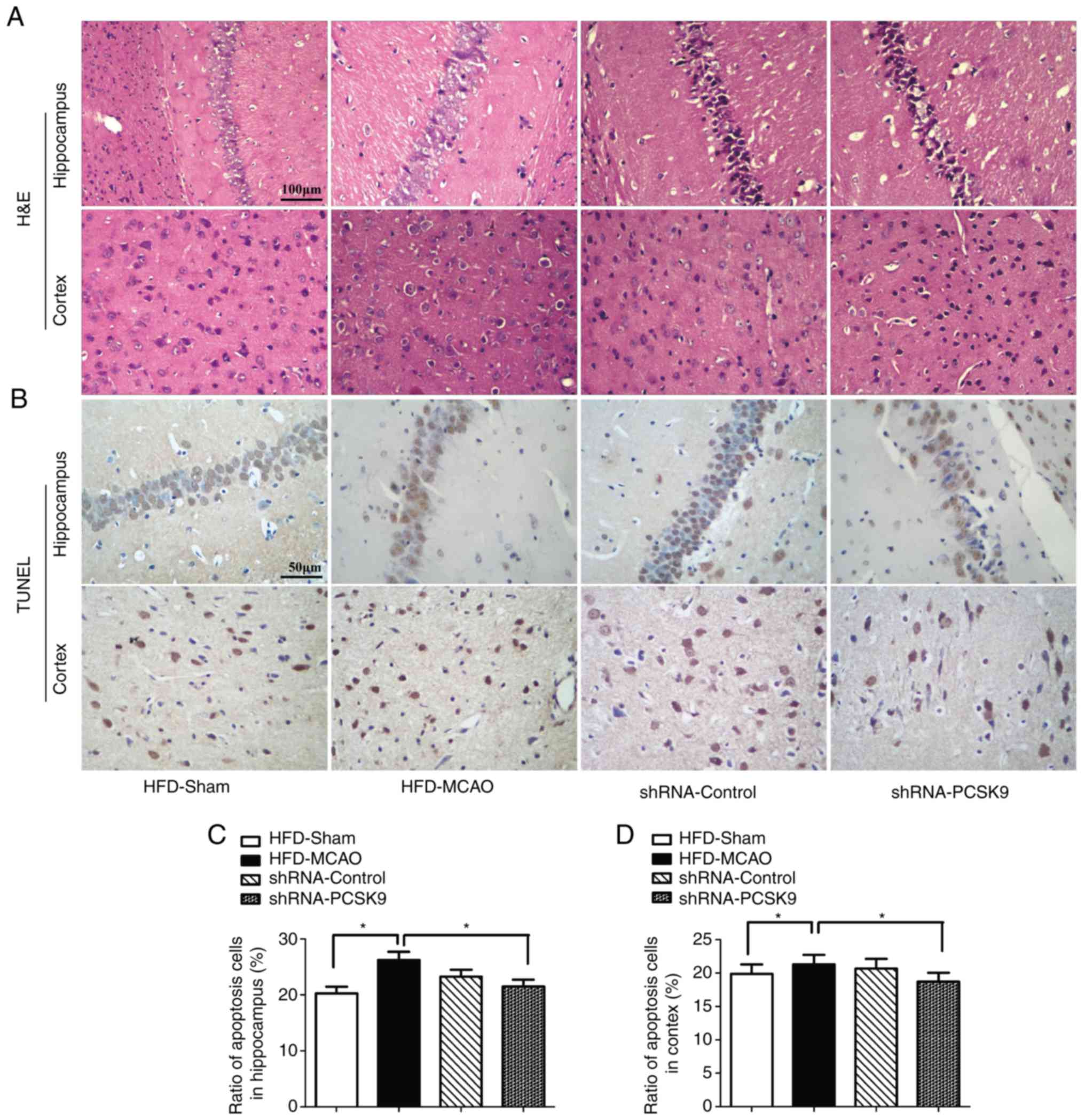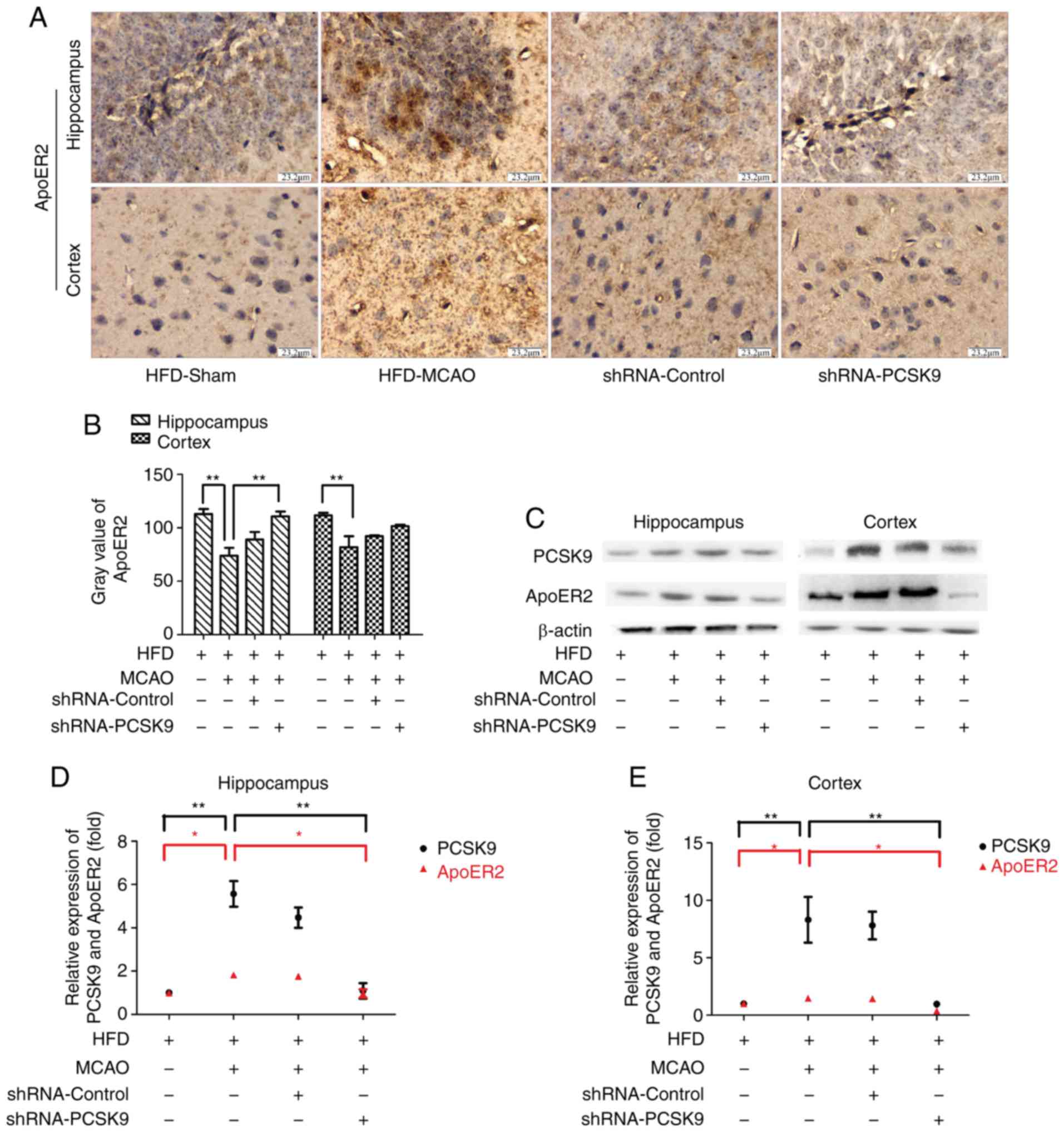|
1
|
Miao Y and Liao JK: Potential serum
biomarkers in the pathophysiological processes of stroke. Expert
Rev Neurother. 14:173–185. 2014. View Article : Google Scholar : PubMed/NCBI
|
|
2
|
Kim E, Tolhurst AT, Qin LY, Chen XY,
Febbraio M and Cho S: CD36/fatty acid translocase, an inflammatory
mediator, is involved in hyperlipidemia-induced exacerbation in
ischemic brain injury. J Neurosci. 28:4661–4670. 2008. View Article : Google Scholar : PubMed/NCBI
|
|
3
|
Nozue T: Lipid lowering therapy and
circulating PCSK9 concentration. J Atheroscler Thromb. 24:895–907.
2017. View Article : Google Scholar : PubMed/NCBI
|
|
4
|
Sun H, Krauss RM, Chang JT and Teng BB:
PCSK9 deficiency reduces atherosclerosis, apolipoprotein B
secretion and endothelial dysfunction. J Lipid Res. 59:207–223.
2018. View Article : Google Scholar
|
|
5
|
Yeramaneni S, Kleindorfer DO, Sucharew H,
Alwell K, Moomaw CJ, Flaherty ML, Woo D, Adeoye O, Ferioli S, de
Los Rios La, Rosa F, et al: Hyperlipidemia is associated with lower
risk of poststroke mortality independent of statin use: A
population-based study. Int J Stroke. 12:152–160. 2017. View Article : Google Scholar :
|
|
6
|
Zhao W, An Z, Hong Y, Zhou G, Guo J, Zhang
Y, Yang Y, Ning X and Wang J: Low total cholesterol level is the
independent predictor of poor outcomes in patients with acute
ischemic stroke: A hospital-based prospective study. BMC Neurol.
16:362016. View Article : Google Scholar : PubMed/NCBI
|
|
7
|
Markaki I, Nilsson U, Kostulas K and
Sjöstrand C: High cholesterol levels are associated with improved
long-term survival after acute ischemic stroke. J Stroke
Cerebrovasc Dis. 23:e47–e532014. View Article : Google Scholar
|
|
8
|
Shapiro MD and Fazio S: PCSK9 and
atherosclerosis-lipids and beyond. J Atheroscler Thromb.
24:462–472. 2017. View Article : Google Scholar : PubMed/NCBI
|
|
9
|
Schulz R and Schlüter KD: PCSK9 targets
important for lipid metabolism. Clin Res Cardiol Suppl. 12(Suppl
1): S2–S11. 2017. View Article : Google Scholar
|
|
10
|
Kysenius K, Muggalla P, Mätlik K, Arumäe U
and Huttunen HJ: PCSK9 regulates neuronal apoptosis by adjusting
ApoER2 levels and signaling. Cell Mol Life Sci. 69:1903–1916. 2012.
View Article : Google Scholar : PubMed/NCBI
|
|
11
|
Liu M, Wu G, Baysarowich J, Kavana M,
Addona GH, Bierilo KK, Mudgett JS, Pavlovic G, Sitlani A, Renger
JJ, et al: PCSK9 is not involved in the degradation of LDL
receptors and BACE1 in the adult mouse brain. J Lipid Res.
51:2611–2618. 2010. View Article : Google Scholar : PubMed/NCBI
|
|
12
|
Schulz R, Schlüter KD and Laufs U:
Molecular and cellular function of the proprotein convertase
subtilisin/kexin type 9 (PCSK9). Basic Res Cardiol. 110:42015.
View Article : Google Scholar : PubMed/NCBI
|
|
13
|
Li J, Liang X, Wang Y, Xu Z and Li G:
Investigation of highly expressed PCSK9 in atherosclerotic plaques
and ox-LDL-induced endothelial cell apoptosis. Mol Med Rep.
16:1817–1825. 2017. View Article : Google Scholar : PubMed/NCBI
|
|
14
|
Wu CY, Tang ZH, Jiang L, Li XF, Jiang ZS
and Liu LS: PCSK9 siRNA inhibits HUVEC apoptosis induced by ox-LDL
via Bcl/Bax-caspase9-caspase3 pathway. Mol Cell Biochem.
359:347–358. 2012. View Article : Google Scholar
|
|
15
|
Tang LL, Ye JY, Jiang SN and Zheng JS:
3,4-oxo-isopropylidene-shikimic acid inhibits cerebral
ischemia-induced oxidative stress and neuronal apoptosis in rats.
Am J Transl Res. 9:1764–1773. 2017.PubMed/NCBI
|
|
16
|
Chiang LW, Grenier JM, Ettwiller L,
Jenkins LP, Ficenec D, Martin J, Jin F, DiStefano PS and Wood A: An
orchestrated gene expression component of neuronal programmed cell
death revealed by cDNA array analysis. Proc Natl Acad Sci USA.
98:2814–2819. 2001. View Article : Google Scholar : PubMed/NCBI
|
|
17
|
Bingham B, Shen R, Kotnis S, Lo CF,
Ozenberger BA, Ghosh N, Kennedy JD, Jacobsen JS, Grenier JM,
DiStefano PS, et al: Proapoptotic effects of NARC 1 (=PCSK9), the
gene encoding a novel serine proteinase. Cytometry A. 69:1123–1131.
2006. View Article : Google Scholar : PubMed/NCBI
|
|
18
|
Rousselet E, Marcinkiewicz J, Kriz J, Zhou
A, Hatten ME, Prat A and Seidah NG: PCSK9 reduces the protein
levels of the LDL receptor in mouse brain during development and
after ischemic stroke. J Lipid Res. 52:1383–1391. 2011. View Article : Google Scholar : PubMed/NCBI
|
|
19
|
Beffert U, Nematollah Farsian F, Masiulis
I, Hammer RE, Yoon SO, Giehl KM and Herz J: ApoE receptor 2
controls neuronal survival in the adult brain. Curr Biol.
16:2446–2452. 2006. View Article : Google Scholar : PubMed/NCBI
|
|
20
|
Waltmann MD, Basford JE, Konaniah ES,
Weintraub NL and Hui DY: Apolipoprotein E receptor-2 deficiency
enhances macrophage susceptibility to lipid accumulation and cell
death to augment atherosclerotic plaque progression and necrosis.
Biochim Biophys Acta. 1842:1395–1405. 2014. View Article : Google Scholar : PubMed/NCBI
|
|
21
|
Morris GP, Wright AL, Tan RP, Gladbach A,
Ittner LM and Vissel B: A comparative study of variables
influencing ischemic injury in the longa and koizumi methods of
intraluminal filament middle cerebral artery occlusion in mice.
PLoS One. 11:e01485032016. View Article : Google Scholar : PubMed/NCBI
|
|
22
|
Wang L, Wang Z, Yuan L, Hao D, Lü N and Li
X: Shenfuqiangxin Capsule inhibits apoptosis through
mitogen-activated protein kinase signal pathway in rats with
cardio-renal syndrome induced by infrarenal aortic-clamping. J
Tradit Chin Med. 37:80–87. 2017. View Article : Google Scholar : PubMed/NCBI
|
|
23
|
Shi W, Wei X, Wang Z, Han H, Fu Y, Liu J,
Zhang Y, Guo J, Dong C, Zhou D, et al: HDAC9 exacerbates
endothelial injury in cerebral ischaemia/reperfusion injury. J Cell
Mol Med. 20:1139–1149. 2016. View Article : Google Scholar : PubMed/NCBI
|
|
24
|
Liu L, Wang Y and Yu Q: The PI3K/Akt
signaling pathway exerts effects on the implantation of mouse
embryos by regulating the expression of RhoA. Int J Mol Med.
33:1089–1096. 2014. View Article : Google Scholar : PubMed/NCBI
|
|
25
|
Livak KJ and Schmittgen TD: Analysis of
relative gene expression data using real-time quantitative PCR and
the 2(-Delta Delta C(T)) method. Methods. 25:402–408. 2001.
View Article : Google Scholar
|















